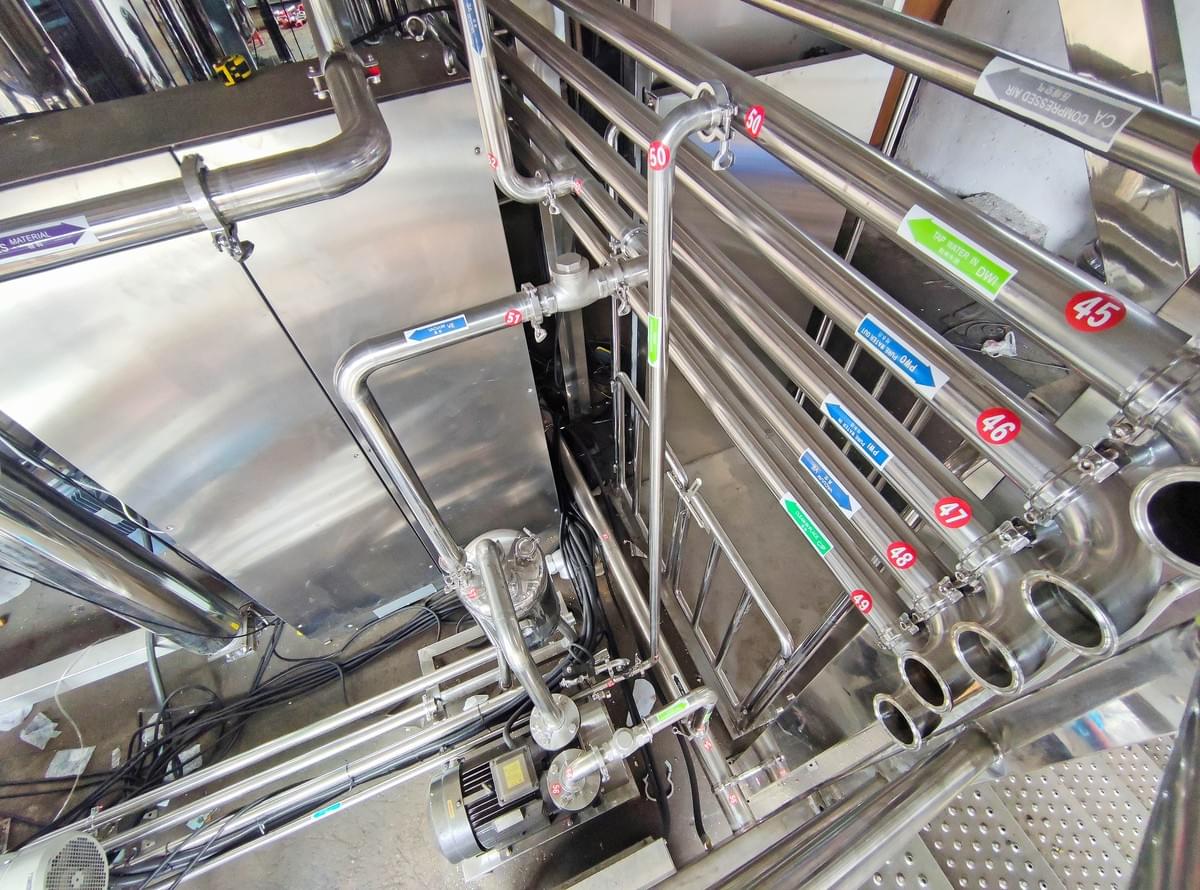In the cosmetic manufacturing industry, hygiene and consistency are paramount. From lotions and creams to serums and shampoos, every product must meet stringent quality standards. One critical yet often overlooked factor in ensuring product integrity is the cleanliness of pipelines in cosmetic mixing machines.
Why Pipeline Cleanliness Matters
Cosmetic mixers—especially vacuum emulsifying mixers—are equipped with a network of pipelines that transport raw materials, water, and finished product during different stages of production. If these pipelines are not properly cleaned and maintained, several problems can arise:
1. Product Contamination
Residue from previous batches can contaminate new formulations. This may lead to bacterial growth, off-smells, discoloration, or undesirable texture. For high-end cosmetic brands, such contamination is not just costly—it can damage their reputation permanently.
2. Formula Inconsistency
Even trace amounts of leftover ingredients can alter the chemical composition of a new batch. This can result in inconsistencies in color, viscosity, or active ingredient performance—issues that will be immediately noticed by consumers.
3. Shortened Equipment Lifespan
Unclean pipelines may lead to clogging, corrosion, and pressure build-up. Over time, this stresses the entire system, leading to more frequent repairs and reduced equipment lifespan.
Best Practices for Pipeline Cleaning in Cosmetic Mixers
To maintain product quality and regulatory compliance (such as
GMP or ISO 22716), manufacturers should follow a structured cleaning protocol:
CIP (Clean-in-Place) Systems: Modern mixing machines often include automatic CIP systems that use hot water, cleaning agents, and pressurized circulation to clean internal surfaces thoroughly without dismantling equipment.
Regular Inspections: Visual and microbiological testing of pipeline residues should be done regularly to detect contamination risks early.
Sanitary Design: Choose mixers with sanitary-grade piping (like SS316L) and hygienic valve systems. These reduce dead angles and make cleaning more efficient.
Enhancing Efficiency and Safety
Investing in pipeline cleanliness is not just about hygiene—it's also about
operational efficiency. Clean pipelines allow for faster batch turnover, less downtime, and improved safety for operators by reducing exposure to residual chemicals or pressure surges.
Conclusion
In cosmetic manufacturing,
pipeline cleanliness is a non-negotiable standard. By prioritizing clean and sanitary pipeline systems in your cosmetic mixing equipment, you protect your brand integrity, meet regulatory requirements, and ensure that every product that reaches the market is safe, effective, and high-quality.
If you’re looking for cosmetic mixers with advanced hygienic design and built-in CIP systems, contact us today—we specialize in equipment that ensures both performance and purity.

